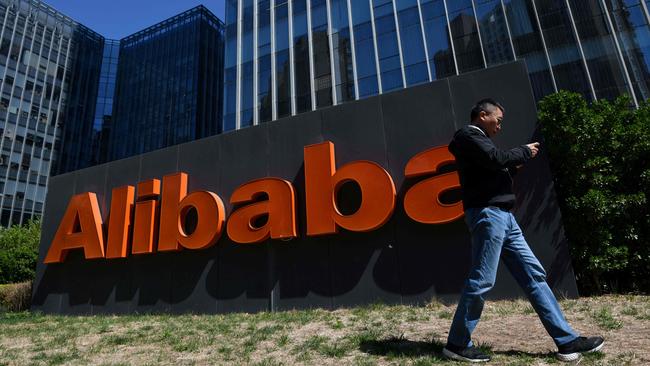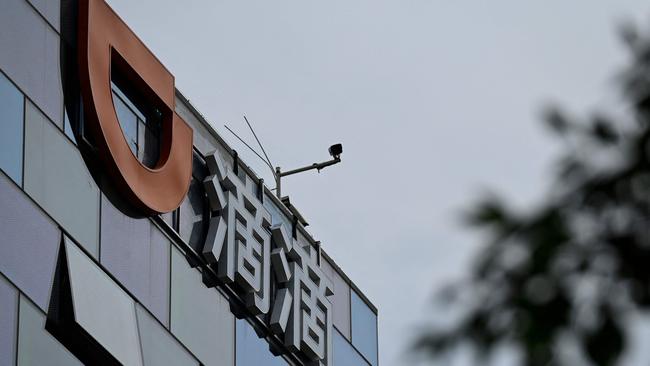
And the data / artificial intelligence war is being played out against the background of increased tensions over Taiwan and a series of smokescreens that mask the deeper forces in the tussle.
Both China and the US are playing the same game using different techniques but the same reasons for action. Let’s start with the US.
This week the Biden administration warned US enterprises with supply chain and investment ties to China’s Xinjiang province that they could face legal consequences, pointing to growing evidence of genocide and other human rights abuses in the area.
The administration warned: “Businesses and individuals that do not exit supply chains, ventures, and/or investments connected to Xinjiang could run a high risk of violating US law.”
Last week the US sanctioned 23 more Chinese entities for suspected Xinjiang abuses, military and business ties. Most are involved with artificial intelligence and security products.
That action follows Chinese polysilicon producers being added to a “Xinjiang entity list”.
China’s Xinjiang province was originally dominated by Uighurs, a predominantly Muslim ethnic group. Culturally and linguistically, they are more akin to Central Asians than to China’s ethnic Han majority. They pressed hard for autonomy, allegedly using terrorist-style techniques.

China’s response was to encourage a large number of the so-called “Han Chinese” to move into the area and, as part of that encouragement, a large number of high technology enterprises were transferred there. It became an important centre for artificial intelligence and data management. China is accused of human rights breaches against the Uighurs and has been the subject of global criticism. China denies the allegations. Part of China’s response to these allegations has been to allege human right rights abuses in the West and it has been particularly pointed at Australian refugee and indigenous issues. The validity of the allegations is for others to debate. My concentration is the impact on the data base and artificial intelligence war.
Just as the US is protecting its data position, so is China. The Chinese government has established a cybersecurity set of laws, which requires stakeholders to “safeguard cybersecurity, protect cyberspace sovereignty and national security”.
In past years this was not enforced against companies using the American market to raise cash, but increasingly US audit rules are demanding more information and China is taking a much tougher line. Earlier this year the Chinese warned the giant Didi Chuxing operation that vast swathes of its data might come under China’s rules. Didi Chuxing went ahead with its IPO and raised $US4.4 billion in what was the largest public listing for a Chinese company in 2021. Two days later, China announced a probe into the company, sending Didi’s stock price down sharply. Class action suits are now being filed.
Last week China announced a new draft proposal that would require Chinese technology firms with more than one million users to undergo a cybersecurity review before being allowed to list on foreign exchanges.
China now believes there is no national security without data security and wants to make sure that important data does not fall into US hands. The Didi issue is just the start and many US-listed Chinese companies are fearful about what is ahead.

India has suddenly become important in this artificial intelligence war. Reflecting the growing tensions between India and China, India has blocked Chinese participation in new technology-related start-ups. Americans have filled the gap.
Both China and the US believe artificial intelligence is going to propel the technology development of nations and those that succeed in the AI game will be the global winners.
But the “skill” of AI machines is related to the amount of data that is assembled. And so modern AI machines can outsmart top lawyers, but only if they have the data.
The skill of nations to assemble vast data bases will determine their ability to harness the power of artificial intelligence.
China understands this phenomenon better than any other nation and its population is plugged into so-called “social credit” data bases that monitor behaviour, rewarding those who behave well and punishing those who behave badly. And what are good and bad behaviour patterns is determined by the government.
China also has Alibaba and Tencent, (a major player in Esports) and increasingly these enterprises are coming under the data protection rules.
The US has remarkable data stored in Amazon, Apple, Facebook, Google and Microsoft, plus its banking system. None of these companies will want to share their data but over time the data will be made anonymous and will be used by AI machines to drive not only products and services but developments where we have no current concept.
As an example, artificial intelligence was important in the fast development of vaccines against Covid-19 in both the US and China.
As a relic of more friendly times many US and Chinese enterprises depend on components produced by the other. And embedded in that cross-dependency is Taiwan, which is one of the reasons why there is increased danger of war.




While Australians see the current China disputes in terms of the movement of physical goods, including tariffs, a far more deadly game is being played between the United States and China -- the race for dominance in data and artificial intelligence.